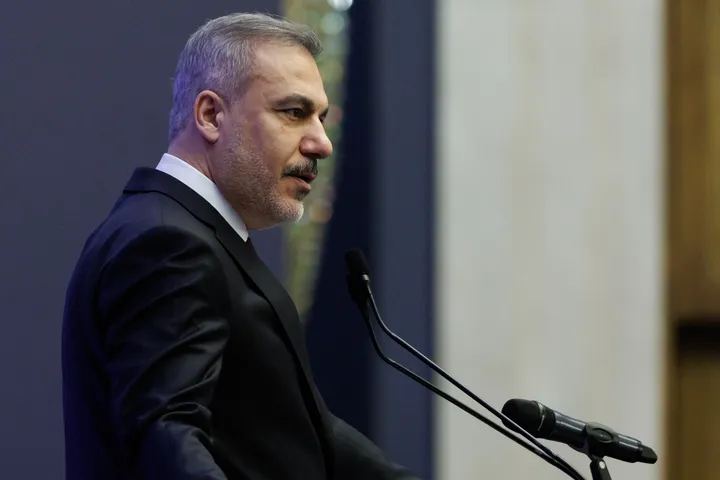Türkiye can benefit from an expected global liquefied natural gas (LNG) production boom projected for 2025, thanks to its extensive infrastructure, according to the head of the International Energy Agency (IEA).
In an interview with Anadolu in Istanbul, Fatih Birol, the head of the IEA, recommended that Türkiye avail of this anticipated LNG boom that is poised to start in 2025.
According to Birol, this LNG upsurge will come with the commissioning of new facilities in many countries that will see an unprecedented rise in LNG supplies.
Advising possible deals should be made in the light of this data, Birol said as after 2025, “the hand of gas importer countries will become stronger” in gas agreement negotiations.
He advised that Türkiye use its vast gas infrastructure to increase gas imports for export to Europe, a region that is in great need of LNG supplies.
Türkiye has seven international natural gas pipelines, five LNG facilities, including three floating storage and regasification units (FSRU), and two underground natural gas storage facilities.
This year, Türkiye signed gas supply agreements with Bulgaria, Hungary, Romania and Moldova.
The country aims to become a key gas hub in the region, excel as an exporter and be an effective manager of the gas it provides.
Diversification of energy import sources vital for independence
More generally, Birol said that the key to ensuring Türkiye is moving toward its objective of increased energy independence and decreased energy imports is the "diversification" of sources.
“In this regard, if a country has a serious dependence on another country in all areas of energy, I think diversification may be a wise policy,” he said.
As part of this policy, he said he was supportive of nuclear energy as an indispensable technology for Türkiye and favoured the construction of more nuclear power plants in addition to the country’s first, the Akkuyu plant.
Nuclear energy plays an important role in reaching the country's 2053 net zero emission target, which is planning nuclear power plants in two other locations after the Akkuyu Nuclear Power Plant (NPP), which is under construction in Mersin.
Earlier this month, Türkiye granted permission to the Akkuyu Nuclear Company to operate the first power unit at the Akkuyu plant. Upon completion of all four units, the plant will have a power generation capacity of 35 billion kilowatt-hours.
'Red Sea impact remains limited for now'
On the rising tension in the Red Sea, where Yemen's Houthis have targeted commercial vessels, disrupting global trade, Birol said: “10% of maritime oil trade and 9% of LNG trade are carried out through the Red Sea. Therefore, its impact remains limited for now.”
Birol said that according to the IEA’s estimates, there will be a two-week delay in shipping when sailing from the alternative route around the Cape of Good Hope in South Africa instead of the Red Sea.
As a result, he stated that this has led to a rise in oil prices of approximately $1–2 per barrel, but if the conflict escalates, he foresees significant consequences as the region accounts for around one-third of the world's oil trade.
























